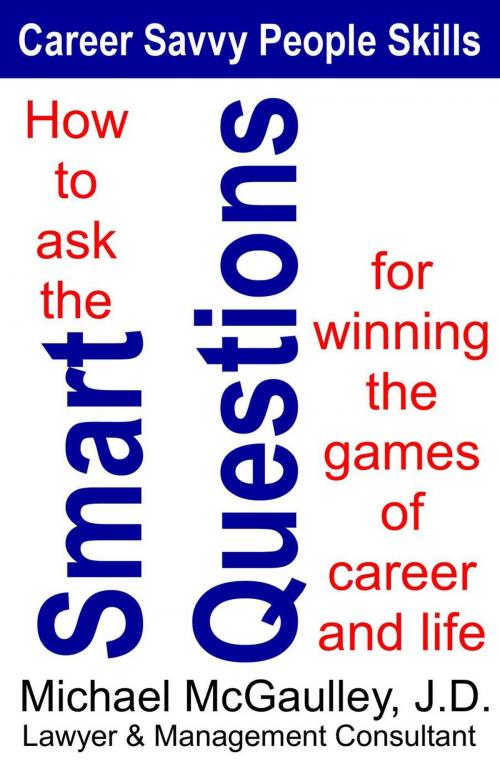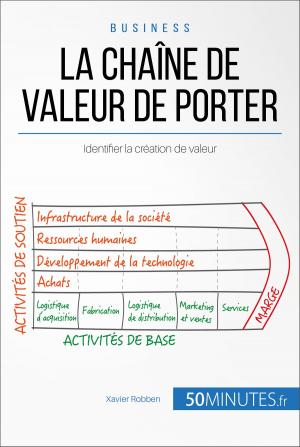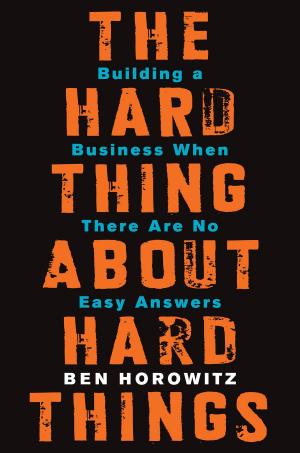How to Ask the Smart Questions for Winning the Games of Career and Life
Career Savvy People Skills, #1
Business & Finance, Management & Leadership, Negotiating, Business Reference, Business Communication, Decision Making & Problem Solving| Author: | Michael McGaulley | ISBN: | 9781386687412 |
| Publisher: | Champlain House Media | Publication: | February 16, 2018 |
| Imprint: | Language: | English |
| Author: | Michael McGaulley |
| ISBN: | 9781386687412 |
| Publisher: | Champlain House Media |
| Publication: | February 16, 2018 |
| Imprint: | |
| Language: | English |
“You have to learn the rules of the game. And then you have to play better than anyone else.” — Albert Einstein
Ever feel that you’re being moved as a pawn in the games others are playing around you? Ever get the sense that you’re not winning— maybe not even aware of — the subtle games of business and life going on around you . . . let alone the tricky games of career success and office politics?
As one federal executive expressed it to the author, “You’ve got to be aware of the games that are being played. You don’t have to play the games yourself, but you do need to recognize when they are being played against you.”
GAMES (AND “GAMIFICATION”) ARE REALITY!
The reality is that games, probes, and subtle competitions—and not to forget office politics! —are facts of life in most organizations. You’re at a significant disadvantage in your quest for career development if you fail to recognize these as games of career success for what they are, and “play” appropriately.
These are not games we play for fun. These are serious career games—secret, covert games that are played not for fun, but for keeps. Covert career games that the opposing players don’t tell us are in play, nor what the rules are, nor even what “winning” consists of. People skills and social intelligence are key.
When you look at work as a success game, you’ll begin noticing game-like ploys like these:
• strategic “disinformation” (i.e. saying or doing things to mislead opposing players on what you are up to);
• pretexting (using cover stories to conceal hidden agendas);
• covert actions, subterfuges, and other types of “sneaky stuff”;
• phony emotions, either to “friend” you, or to intimidate you;
• sometimes principals operating through stand-ins. (Think of that the next time the boss asks you to sit in for her at a meeting: Maybe this isn’t really a vote of confidence in you; maybe you’re being set up to take the fall.)
• and, of course, office politics in all its forms and nuances!
KNOWLEDGE IS POWER
But if the other players don’t tell us what the rules of success are in these career games, nor even put a name to their games, then how do we survive and win these career success games? How do we develop key career development skills?
How? By making a habit of asking the right savvy, smart questions you'll learn here, though in the book they are fleshed out with mini-case studies and additional questions useful in getting perspective and drilling in for more detail):
• What are the "real rules" that operate here, beneath the coded language and disinformation? What real rules govern communication here?
• Do I really need to be involved in this? Or am I being drawn into someone else's problem?
• What is “winning” for me? What is winning for the others, including hidden players operating through stand-ins?
• What is my best move at this point? Is a confrontation needed? If so, is now the best time?
• What should I consider before taking action? Am I thinking enough steps ahead?
• Are there broader opportunities hidden within this situation?
• What can I learn from this situation?
• Am I receiving the recognition and compensation I honestly deserve?
“You have to learn the rules of the game. And then you have to play better than anyone else.” — Albert Einstein
Ever feel that you’re being moved as a pawn in the games others are playing around you? Ever get the sense that you’re not winning— maybe not even aware of — the subtle games of business and life going on around you . . . let alone the tricky games of career success and office politics?
As one federal executive expressed it to the author, “You’ve got to be aware of the games that are being played. You don’t have to play the games yourself, but you do need to recognize when they are being played against you.”
GAMES (AND “GAMIFICATION”) ARE REALITY!
The reality is that games, probes, and subtle competitions—and not to forget office politics! —are facts of life in most organizations. You’re at a significant disadvantage in your quest for career development if you fail to recognize these as games of career success for what they are, and “play” appropriately.
These are not games we play for fun. These are serious career games—secret, covert games that are played not for fun, but for keeps. Covert career games that the opposing players don’t tell us are in play, nor what the rules are, nor even what “winning” consists of. People skills and social intelligence are key.
When you look at work as a success game, you’ll begin noticing game-like ploys like these:
• strategic “disinformation” (i.e. saying or doing things to mislead opposing players on what you are up to);
• pretexting (using cover stories to conceal hidden agendas);
• covert actions, subterfuges, and other types of “sneaky stuff”;
• phony emotions, either to “friend” you, or to intimidate you;
• sometimes principals operating through stand-ins. (Think of that the next time the boss asks you to sit in for her at a meeting: Maybe this isn’t really a vote of confidence in you; maybe you’re being set up to take the fall.)
• and, of course, office politics in all its forms and nuances!
KNOWLEDGE IS POWER
But if the other players don’t tell us what the rules of success are in these career games, nor even put a name to their games, then how do we survive and win these career success games? How do we develop key career development skills?
How? By making a habit of asking the right savvy, smart questions you'll learn here, though in the book they are fleshed out with mini-case studies and additional questions useful in getting perspective and drilling in for more detail):
• What are the "real rules" that operate here, beneath the coded language and disinformation? What real rules govern communication here?
• Do I really need to be involved in this? Or am I being drawn into someone else's problem?
• What is “winning” for me? What is winning for the others, including hidden players operating through stand-ins?
• What is my best move at this point? Is a confrontation needed? If so, is now the best time?
• What should I consider before taking action? Am I thinking enough steps ahead?
• Are there broader opportunities hidden within this situation?
• What can I learn from this situation?
• Am I receiving the recognition and compensation I honestly deserve?















